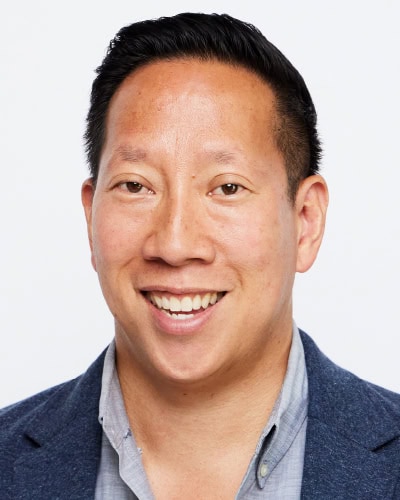Marcus Chung: Guiding a Sustainable Career


Marcus Chung is chief operating officer of Coyuchi, which develops sustainable premium home textiles.
RESPONSIBILITIES: Ecommerce and retail operations, supply chain, sourcing, production, sustainability, and IT.
EXPERIENCE: Vice president, manufacturing and supply chain, ThirdLove; director, sourcing, Stitch Fix; vice president, responsible sourcing, The Children’s Place; director, responsible sourcing, Talbots; director, sustainability, McKesson; senior manager, social responsibility strategy, Gap Inc.; consultant, CEB (now Gartner).
EDUCATION: MBA, University of California, Berkeley; BA, Wesleyan University.
I began my career as a consultant. It was like an extension of school because I gained exposure to many different companies, but I wasn’t actually managing a part of the business.
Because I didn’t have a formal business background, I needed to gain the skills and competencies so I’d feel confident that I could succeed in an operational role. When I went back to business school, it seemed like a natural way to transition from an external advisor role to being an operator.
After business school, I started at Gap Inc. as part of its social responsibility and corporate sustainability team. A lot of our work involved partnering with the factories that produced our goods overseas and protecting the rights of workers, as well as managing the sustainability impact of our operations around the world.
To be effective and help influence decisions, I had to put myself in the shoes of the people in other functional areas. For example, if we needed to move production away from a factory that’s not complying with our standards, how do we manage that in a responsible way for the business?
Shifting to Supply Chain
The more I advanced in my career, the more I enjoyed supply chain and operations. I organically moved into more commercial roles. It’s rewarding to be making decisions.
Supply chain is such an interesting, dynamic part of business. We have to think about how issues in faraway countries can impact us, whether the disruptions in the Red Sea, or elections in different countries that might shift trade relationships. I love how global it is.
I still have a mindset on sustainability and social impact. Now, I’m in a position where I can guide my team so they consider these impacts as part of everyone’s jobs.
There’s a lot more awareness about sustainability and the impact supply chains can have on people and the planet. When I started out, we’d have to explicitly ask about organic cotton options and there’d be, say, two swatches. Now, suppliers have entire books of eco collections, with recycled, organic, regenerative, and other options.
Having an impact beyond the business operations also motivates me.
At the Children’s Place, we led a coalition of apparel brands that formed the Alliance for Bangladesh Worker Safety. This was to strengthen protections for workers in Bangladesh factories after the collapse of Rana Plaza. That effort had real impact on the people of Bangladesh and on the industry overall.
Managing Change
Coyuchi is a company of fewer than 40 people. When we introduce big initiatives, like implementing a new ERP system, almost the whole company gets involved. That’s on top of their day jobs.
My role as a leader is to help my team prioritize, because there’s always more than we can do. The hardest part is saying no and allowing others to say no to things that are not making a difference, or that we’re not able to execute in a way we can feel proud about. I am not great at this yet, but I’m working on it. I want to make sure we’re as focused as possible on the things that are moving the needle.
My early experience in roles in which I was not the decision maker informed how I lead today. I try to bring people along, collaborate, and ensure everyone can provide input and understands where we’re going. Even if we don’t unanimously agree on the outcome, the process helps us all become confident that we’ve landed on the right decision. One direct report said my management style is like a wilderness explorer leading a team. To reach the goal, you can’t lead by being militaristic and yelling orders.
Marcus Chung Answers the Big Questions
1. What’s the best leadership/supply chain advice you ever received?
Always create contingency plans.
2. If you could represent your country in the Olympics, for what sport would it be?
I grew up swimming competitively and was captain of my undergraduate swim team. I feel like I have to say swimming even though I haven’t been in a pool in years.
3. What gets you out of bed in the morning?
Unfortunately, it’s usually one of our cats, who recently started meowing loudly at 4:30 a.m.
